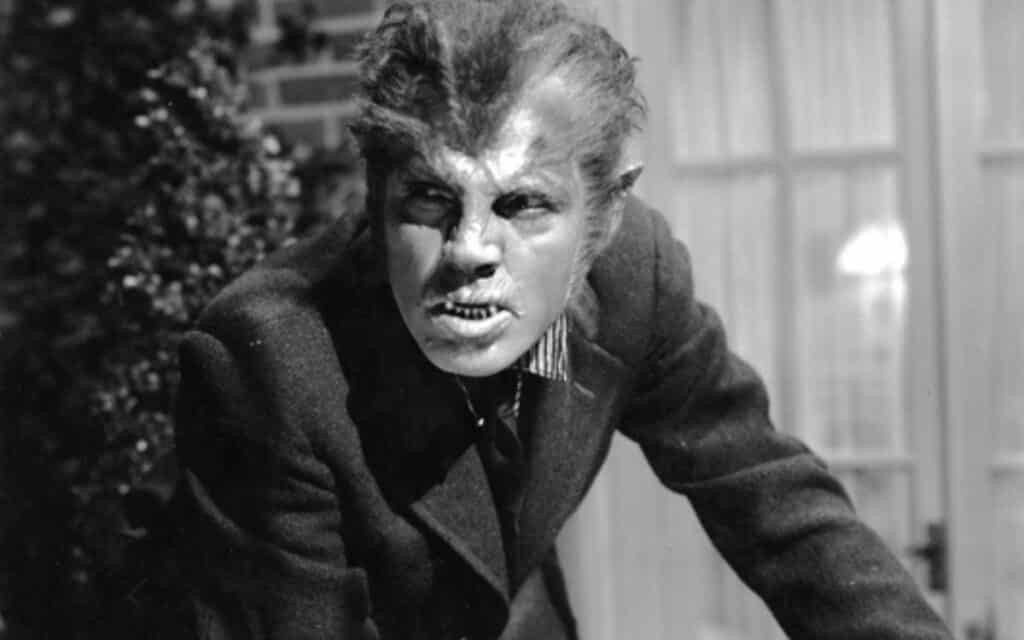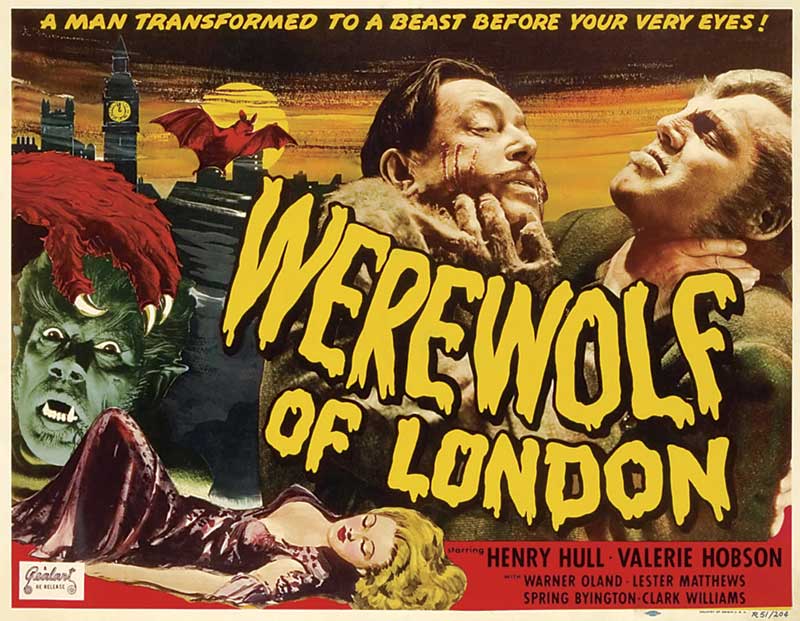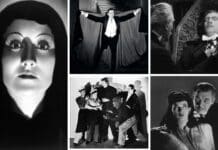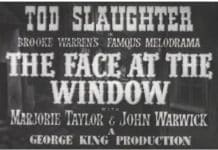Werewolf of London 1935 was Universal’s first attempt to bring the lycanthrope into its stable of horror stars, says ANDREW GARVEY

TITLE: Werewolf of London
RELEASED: 1935
DIRECTOR: Stuart Walker
CAST: Henry Hull, Warner Oland, Valerie Hobson, Lester Matthews, Spring Byington, Clark Williams and Lawrence Grant
Werewolf of London 1935 Review
Bearing more than a passing resemblance to 1931’s Dr. Jekyll and Mr. Hyde, Werewolf of London is the tale of a hardworking, introverted scientist meddling with things he really shouldn’t and subsequently being transformed into an inhuman savage stalking the night for victims.
Universal’s first werewolf movie, it predates the more famous Lon Chaney Jr. classic, The Wolf Man 1941 by six years. And while there are significant differences between the two, this earlier effort, starring a restrained but effective Henry Hull in his best-known film role, lays down some of the major rules for cinematic lycanthropes. Cats and dogs fear him, his transformations are triggered by the cycle of the moon and he’s a tragic figure, killing because of an uncontrollable compulsion.

Dr. Wilfred Glendon, a world famous botanist and apparently a good enough inventor to have CCTV installed in his lab and have constructed a moonlight generator, is in Tibet searching for a rare, magical flower. While there he ignores a travelling priest’s warning not to head into a supposedly demon-infested valley and is attacked by a spectacularly eyebrowed assailant and bitten on the arm.
Glendon gets home and begins experimenting with the flower and artificial moonlight. He is visited by the mysterious Dr. Yogami and in being warned of the impending horror, is told, in one of the film’s many memorable quotes that “the werewolf is neither man nor wolf but a Satanic creature with the worst qualities of both.”
A very clear influence on John Landis’ 1981 horror comedy classic An American Werewolf in London, this is a surprisingly funny film. Several minor characters are there largely to provide some laughs. Society gossip Ettie Coombs, an excuse-making police constable and best of all, Mrs. Whack and Mrs. Moncaster, two drunken, cantankerous old widows who are the worst of friends are hugely entertaining.
Sharing a make-up artist with the Wolf Man (the legendary Jack Pierce who crafted Boris Karloff’s look in Frankenstein), the creature effect is much simpler but works well even if the transformations themselves are disappointingly quick and painless.
Hardly a gorefest, the body count is low and, as the Wolf Man does a few years later, this werewolf chooses (despite his fangs) to choke his victims to death. Those victims by the way, and a few of his intended ones, do provide some fantastic, ear-splitting screams.
Some of the film’s werewolf ‘rules’ such as the requirement to kill at least one person each night of the full moon and the specific targeting of loved ones (which doesn’t really happen anyway) didn’t endure and the film really doesn’t seem able to make up its mind whether the werewolf is a superhuman beast or a quite easily defeated foe but there’s still plenty to recommend here.
There are strong performances from a quality cast, a memorable script (“Fancy! Bringing a thing like that into Christian England!”) and good direction from Stuart Walker who worked with Henry Hull on 1934’s largely forgotten version of Great Expectations.
But, overall, there’s a reason why its not as well known or well remembered as the likes of the Wolf Man. Certainly worth a watch, but not a classic.
What did you think of Werewolf of London 1935? Tell us in the comments section below!







